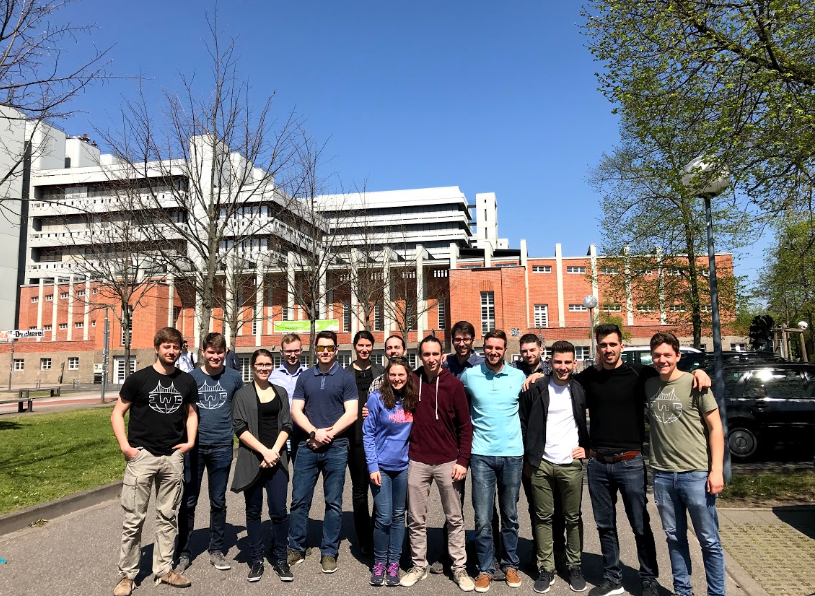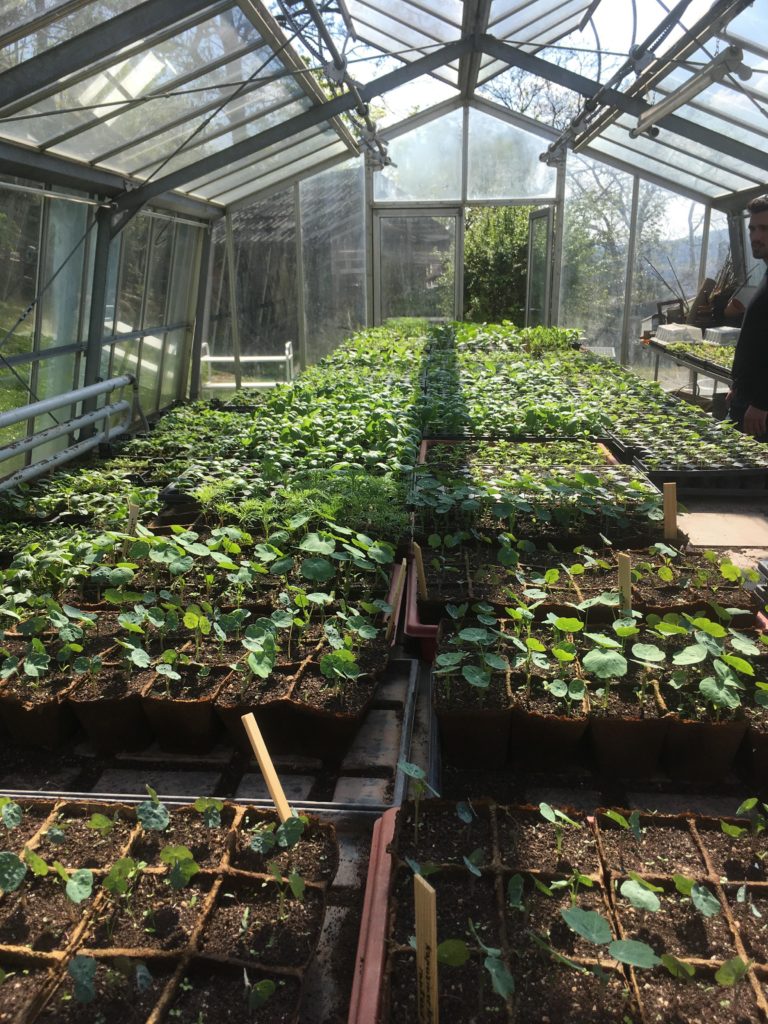
Day 5: On board with our three cars, the whole team headed to Karlsruhe for a visit of the delegation of engineer without borders Germany at the Institute of Technology of Karlsruhe (KIT). After an hour of congestion on the autobahn, we arrived at the school. We met two engineering students, Andi and Tillman, and Philip a graduate. All three are part of a group of 300 active members working on international cooperation projects around the world. Engineer Without Borders Germany (EWB) was founded in 2004 after the tsunami in the Sri Lanka region. In total, they carried out 16 projects, wich 10 of them are still active. The areas of their projects and expertise are energy, access to water, infrastructure and economic development.
This group raises about 350,000 euros per year for the 10 different projects. Most of the members’ logistics costs are covered by the members themselves. Thus, given the organization of their project, not all members go on a mission, and for the most part, they will not be on site for the entire duration of the construction, so that they can organize their project and their studies at KIT. Their project can be compared to PRECI and ÉTS, which also carries out one project a year of international cooperation. However, the members of the PRÉCI are only asked for one year, whereas at EWB Germany, their project is spread over several years in order to transmit the knowledge.
Then they presented their respective projects to us. The first, in Uganda, which Philip is working on, is to build an ecosan latrine. Thus, users of these latrines to collect faecal waste to make fertilizer.
The project of Tillman in The Gambia, the smallest country in Africa and, where the human factor index is one of the lowest (174/180) aims to replace the water wells that are currently handmade by automatic ones. These wells, which are powered by solar energy, will serve community gardens.

Then, Frederic, our head of mission, presented the technology mission project and our student group. In addition, we are proud to announce that ÉTS has recently created a new partnership with KIT. This will make it easier for students to study at this renowned German school.

Back in Stuttgart, the team headed for the city centre for a visit to an urban agricultural centre. We met Virginie, who is doing a master’s degree at the Free School in Stuttgart. The particularity of this school is that it is the first school in the world to use the Waldorf model. A rather free mode of teaching that encourages creativity. Thus, we were able to see the vegetable fields that the children studying at this school cultivate. It was interesting because the members of the mission followed a traditional and pedagogical type of teacher.
See you tomorrow 😉